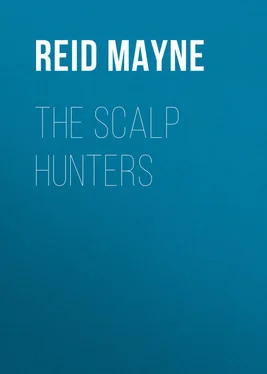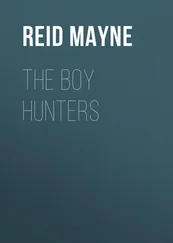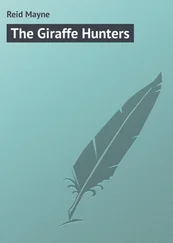Mayne Reid - The Scalp Hunters
Здесь есть возможность читать онлайн «Mayne Reid - The Scalp Hunters» — ознакомительный отрывок электронной книги совершенно бесплатно, а после прочтения отрывка купить полную версию. В некоторых случаях можно слушать аудио, скачать через торрент в формате fb2 и присутствует краткое содержание. Жанр: literature_19, foreign_antique, foreign_prose, на английском языке. Описание произведения, (предисловие) а так же отзывы посетителей доступны на портале библиотеки ЛибКат.
- Название:The Scalp Hunters
- Автор:
- Жанр:
- Год:неизвестен
- ISBN:нет данных
- Рейтинг книги:4 / 5. Голосов: 1
-
Избранное:Добавить в избранное
- Отзывы:
-
Ваша оценка:
- 80
- 1
- 2
- 3
- 4
- 5
The Scalp Hunters: краткое содержание, описание и аннотация
Предлагаем к чтению аннотацию, описание, краткое содержание или предисловие (зависит от того, что написал сам автор книги «The Scalp Hunters»). Если вы не нашли необходимую информацию о книге — напишите в комментариях, мы постараемся отыскать её.
The Scalp Hunters — читать онлайн ознакомительный отрывок
Ниже представлен текст книги, разбитый по страницам. Система сохранения места последней прочитанной страницы, позволяет с удобством читать онлайн бесплатно книгу «The Scalp Hunters», без необходимости каждый раз заново искать на чём Вы остановились. Поставьте закладку, и сможете в любой момент перейти на страницу, на которой закончили чтение.
Интервал:
Закладка:
Santa Fé is the entrepôt of the province, and the chief seat of its trade. On reaching it we halted, camping without the walls.
Saint Vrain, several other propriétaires , and myself, took up our quarters at the Fonda, where we endeavoured, by means of the sparkling vintage of El Paso, to make ourselves oblivious of the hardships we had endured in the passage of the plains.
The night of our arrival was given to feasting and making merry.
Next morning I was awakened by the voice of my man Gode, who appeared to be in high spirits, singing a snatch of a Canadian boat-song.
“Ah, monsieur!” cried he, seeing me awake, “to-night – aujourd’hui – une grande fonction – one bal – vat le Mexicain he call fandango. Très bien, monsieur. You vill sure have grand plaisir to see un fandango Mexicain?”
“Not I, Gode. My countrymen are not so fond of dancing as yours.”
“C’est vrai, monsieur; but von fandango is très curieux. You sall see ver many sort of de pas. Bolero, et valse, wis de Coona, and ver many more pas, all mix up in von puchero. Allons! monsieur, you vill see ver many pretty girl, avec les yeux très noir, and ver short – ah! ver short – vat you call em in Americaine?”
“I do not know what you allude to.”
“Cela! Zis, monsieur,” holding out the skirt of his hunting-shirt; “par Dieu! now I have him – petticoes; ver short petticoes. Ah! you sall see vat you sall see en un fandango Mexicaine.
“‘Las niñas de Durango
Commigo bailandas,
Al cielo saltandas,
En el fandango – en el fan-dang – o.’
“Ah! here comes Monsieur Saint Vrain. Écoutez! He never go to fandango. Sacré! how monsieur dance! like un maître de ballet. Mais he be de sangre – blood Français. Écoutez!
“‘Al cielo saltandas,
En el fandango – en el fan-dang – .’”
“Ha! Gode!”
“Monsieur?”
“Trot over to the cantina, and beg, borrow, buy, or steal, a bottle of the best Paso.”
“Sall I try steal ’im, Monsieur Saint Vrain?” inquired Gode, with a knowing grin.
“No, you old Canadian thief! Pay for it. There’s the money. Best Paso, do you hear? – cool and sparkling. Now, voya! Bon jour, my bold rider of buffalo bulls I still abed, I see.”
“My head aches as if it would split.”
“Ha, ha, ha! so does mine; but Gode’s gone for medicine. Hair of the dog good for the bite. Come, jump up!”
“Wait till I get a dose of your medicine.”
“True; you will feel better then. I say, city life don’t agree with us, eh?”
“You call this a city, do you?”
“Ay, so it is styled in these parts: ‘la ciudad de Santa Fé;’ the famous city of Santa Fé; the capital of Nuevo Mexico; the metropolis of all prairiedom; the paradise of traders, trappers, and thieves!”
“And this is the progress of three hundred years! Why, these people have hardly passed the first stages of civilisation.”
“Rather say they are passing the last stages of it. Here, on this fair oasis, you will find painting, poetry, dancing, theatres, and music, fêtes and fireworks, with all the little amorous arts that characterise a nation’s decline. You will meet with numerous Don Quixotes, soi-disant knights-errant, Romeos without the heart, and ruffians without the courage. You will meet with many things before you encounter either virtue or honesty. Hola! muchacho!”
“Que es, señor?”
“Hay cafe?”
“Si, señor.”
“Bring us a couple of tazas, then – dos tazas, do you hear? and quick – aprisa! aprisa!”
“Si, señor.”
“Ah! here comes le voyageur Canadien. So, old Nor’-west! you’ve brought the wine?”
“Vin délicieux, Monsieur Saint Vrain! equal to ze vintage Français.”
“He is right, Haller! Tsap – tsap! delicious you may say, good Gode. Tsap – tsap! Come, drink! it’ll make you feel as strong as a buffalo. See! it seethes like a soda spring! like ‘Fontaine-qui-bouille’; eh, Gode?”
“Oui, monsieur; ver like Fontaine-qui-bouille. Oui.”
“Drink, man, drink! Don’t fear it: it’s the pure juice. Smell the flavour; taste the bouquet. What wine the Yankees will one day squeeze out of these New Mexican grapes!”
“Why? Do you think the Yankees have an eye to this quarter?”
“Think! I know it; and why not? What use are these manikins in creation? Only to cumber the earth. Well, mozo, you have brought the coffee?”
“Ya, esta, señor.”
“Here! try some of this; it will help to set you on your feet. They can make coffee, and no mistake. It takes a Spaniard to do that.”
“What is this fandango Gode has been telling me about?”
“Ah! true. We are to have a famous one to-night. You’ll go, of course?”
“Out of curiosity.”
“Very well, you will have your curiosity gratified. The blustering old grampus of a Governor is to honour the ball with his presence; and it is said, his pretty señora; that I don’t believe.”
“Why not?”
“He’s too much afraid lest one of these wild Americanos might whip her off on the cantle of his saddle. Such things have been done in this very valley. By Saint Mary! she is good-looking,” continued Saint Vrain, in a half-soliloquy, “and I knew a man – the cursed old tyrant! only think of it!”
“Of what?”
“The way he has bled us. Five hundred dollars a waggon, and a hundred of them at that; in all, fifty thousand dollars!”
“But will he pocket all this? Will not the Government – ?”
“Government! no, every cent of it. He is the Government here; and, with the help of this instalment, he will rule these miserable wretches with an iron rod.”
“And yet they hate him, do they not?”
“Him and his. And they have reason.”
“It is strange they do not rebel.”
“They have at times; but what can they do? Like all true tyrants, he has divided them, and makes them spend their heart’s hatred on one another.”
“But he seems not to have a very large army; no bodyguard – ”
“Bodyguard!” cried Saint Vrain, interrupting me; “look out! there’s his bodyguard!”
“Indios bravos! les Navajoes!” exclaimed Gode, at the same instant.
I looked forth into the street. Half a dozen tall savages, wrapped in striped serapes, were passing. Their wild, hungry looks, and slow, proud walk at once distinguished them from “Indios manzos,” the water-drawing, wood-hewing pueblos.
“Are they Navajoes?” I asked.
“Oui, monsieur, oui!” replied Gode, apparently with some excitement. “Navajoes!”
“There’s no mistaking them,” added Saint Vrain.
“But the Navajoes are the notorious enemies of the New Mexicans! How come they to be here? Prisoners?”
“Do they look like prisoners?”
They certainly showed no signs of captivity in either look or gesture. They strode proudly up the street, occasionally glancing at the passers with an air of savage and lordly contempt.
“Why, then, are they here? Their country lies far to the west.”
“That is one of the secrets of Nuevo Mexico, about which I will enlighten you some other time. They are now protected by a treaty of peace, which is only binding upon them so long as it may suit their convenience to recognise it. At present they are as free here as you or I; indeed, more so, when it comes to that. I wouldn’t wonder it we were to meet them at the fandango to-night.”
“I have heard that the Navajoes are cannibals.”
“It is true. Look at them this minute! See how they gloat upon that chubby little fellow, who seems instinctively to fear them. Lucky for the urchin it’s broad daylight, or he might get chucked under one of those striped blankets.”
Читать дальшеИнтервал:
Закладка:
Похожие книги на «The Scalp Hunters»
Представляем Вашему вниманию похожие книги на «The Scalp Hunters» списком для выбора. Мы отобрали схожую по названию и смыслу литературу в надежде предоставить читателям больше вариантов отыскать новые, интересные, ещё непрочитанные произведения.
Обсуждение, отзывы о книге «The Scalp Hunters» и просто собственные мнения читателей. Оставьте ваши комментарии, напишите, что Вы думаете о произведении, его смысле или главных героях. Укажите что конкретно понравилось, а что нет, и почему Вы так считаете.












